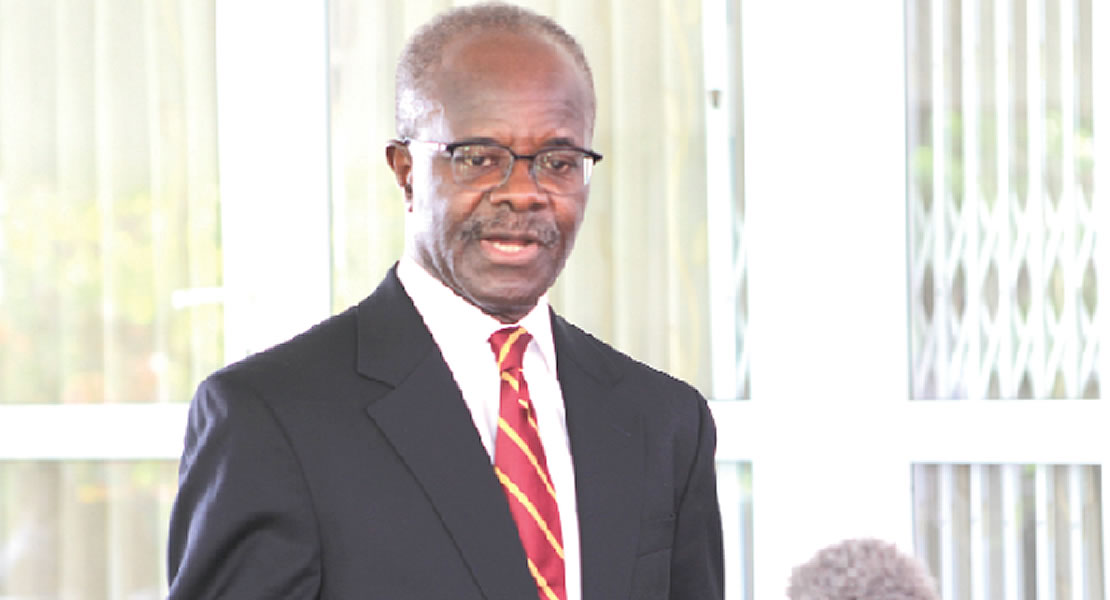
The flagbearer of the Convection People’s Party (CPP) in the 2008 elections, Dr Paa Kwesi Nduom, has called for a repeal of Article 78 (1) of the 1992 Constitution which enjoins the President to appoint majority of ministers of state from Parliament.
Using himself as an example, he said both functions were very demanding and made holders of both positions not to function effectively.
Dr Nduom was speaking at a meeting between the Constitutional Review Commission (CRC) and the political parties in Accra on Monday.
The meeting facilitated by the Institute of Economic Affairs (lEA), was to afford the political parties the opportunity to identify, articulate and speak to a set of constitutional issues relating to, and from their perspective that needs to be addressed to and by the Commission.
It took-two forms: The identification and articulation of the strengths of the Constitution concerning political parties and from the perspective of political parties as well as the weaknesses in the document.
The National Democratic Congress (NDC), the New Patriotic Party (NPP); the Convention People’s Party (CPP), the Democratic Freedom Party (DFP), the People’s National Convention (PNC) and the Democratic People’s Party (DPP) were present.
Article 78 (1) of the 1992 Constitution states that; “Ministers of State shall be appointed by the President with the prior approval of Parliament from among members of Parliament or persons qualified to be elected as members of Parliament, except that the majority of Ministers of State shall be appointed from among members of Parliament.”
Dr Nduom said: “I have been Minister of state and Member of Parliament at the same time before and I found combining both tasks so arduous that I could not function as effectively as I would have wished.”
“Any Member of Parliament who is made Minister of State should resign his position as MP and concentrate on his duties as a Minister,” he added.
Dr Nduom also called for the removal of Article 68 (5) of the Constitution which exempts the President from paying tax.
It states that: “The salary, allowances, facilities, pensions and gratuity referred to in clauses (3) and (4) shall be exempt from tax.”
He said the President needed to pay tax on all his earnings to encourage all citizens to honour their tax obligations to the state.
Another member of the CPP, Mr Bright Akwetey, said the Constitution needed to be amended and the District Assemblies brought under the control of Parliament and the Judiciary.
He said control could be achieved by the laws made by Parliament and the adjudication of cases by the Judiciary on District assembly issues. The provision for a two-term limit for District Chief Executives (DCEs), he said, must also be removed.
Mr T.N. Ward Brew, founder of the DPP, said there was, extreme partisanship in, the country with sharp divisions long NDC and NPP lines; and added that that had to be dealt with by any constitutional review.
Ms Otiko Afisa Djaba of the New Patriotic Party, who spoke on behalf of Ghanaian women, said women constituted more than 51 per cent of the population but were not a significant part of decision-making at all levels in the society.
“We need the Constitution to act as a tool to empower women to speed up the development of Ghana,” she said.
She said the constitutional review should guarantee 30 per cent representation of women, on public institutions, boards and corporations, and should also make it mandatory for all political parties to reserve 30 per cent of elected positions to women.
Any amendment, she added, should also, secure a 40 per cent enrolment in schools of girls and 40 per cent employment in both the agricultural and non-agricultural sectors.
Mr O.B. Amoah of the NPP said a ceiling needed to be fixed on the number of justices who could be appointed to the Supreme Court.
Earlier, Alhaji Huudu Yahaya of the NDC, presenting a joint communiqué arrived at by the political parties at a two-day review workshop on the review of the Constitution said the power of the Attorney-General to prosecute corruption and financial crimes by public office holders should be taken away and conferred on the anticipated organised crime commission.
The Attorney-General’s power of nolle prosequi, he added, should however be maintained with regard to all prosecutions, including prosecutions by the CHRAJ.
Source: Daily Graphic